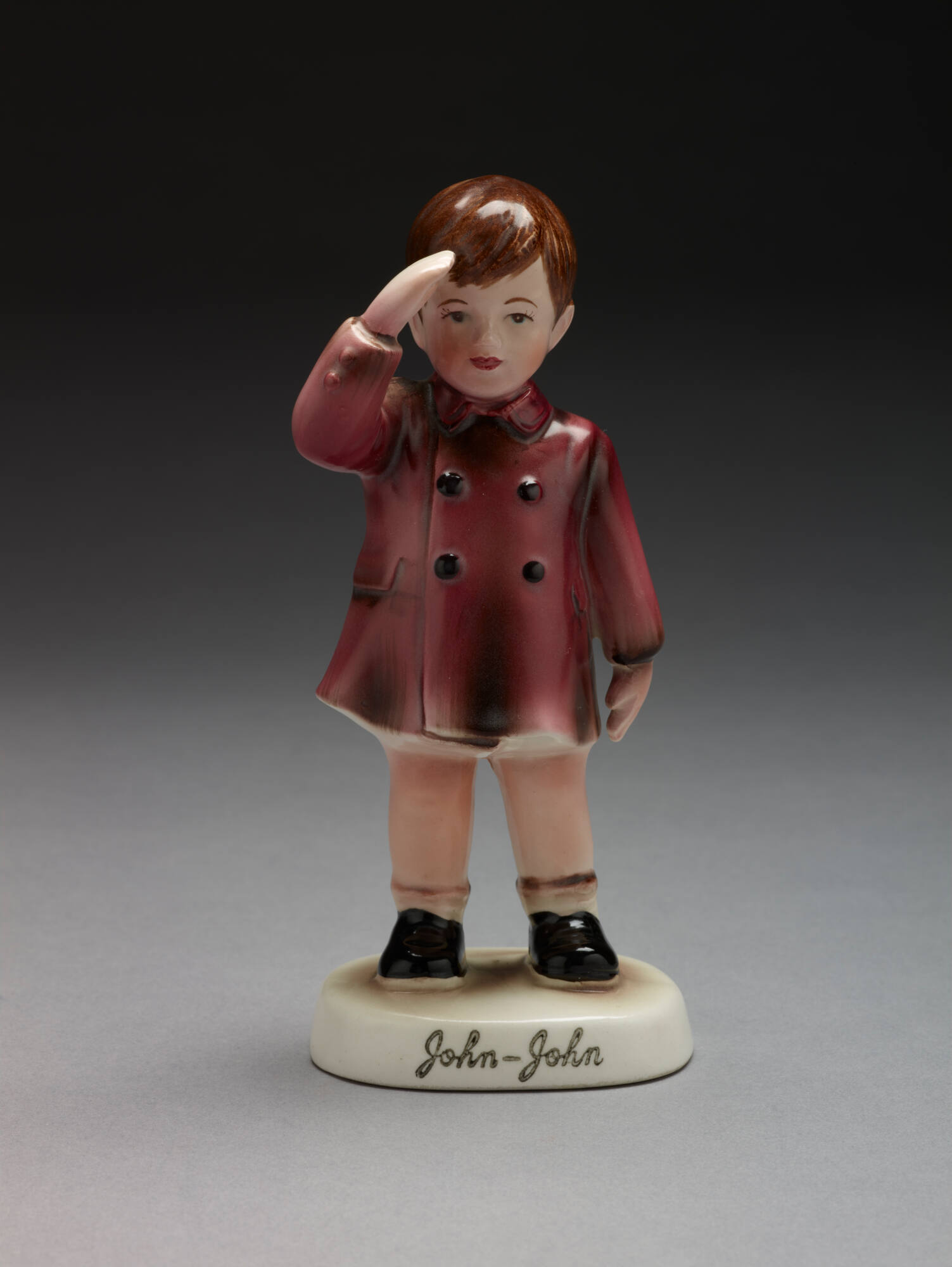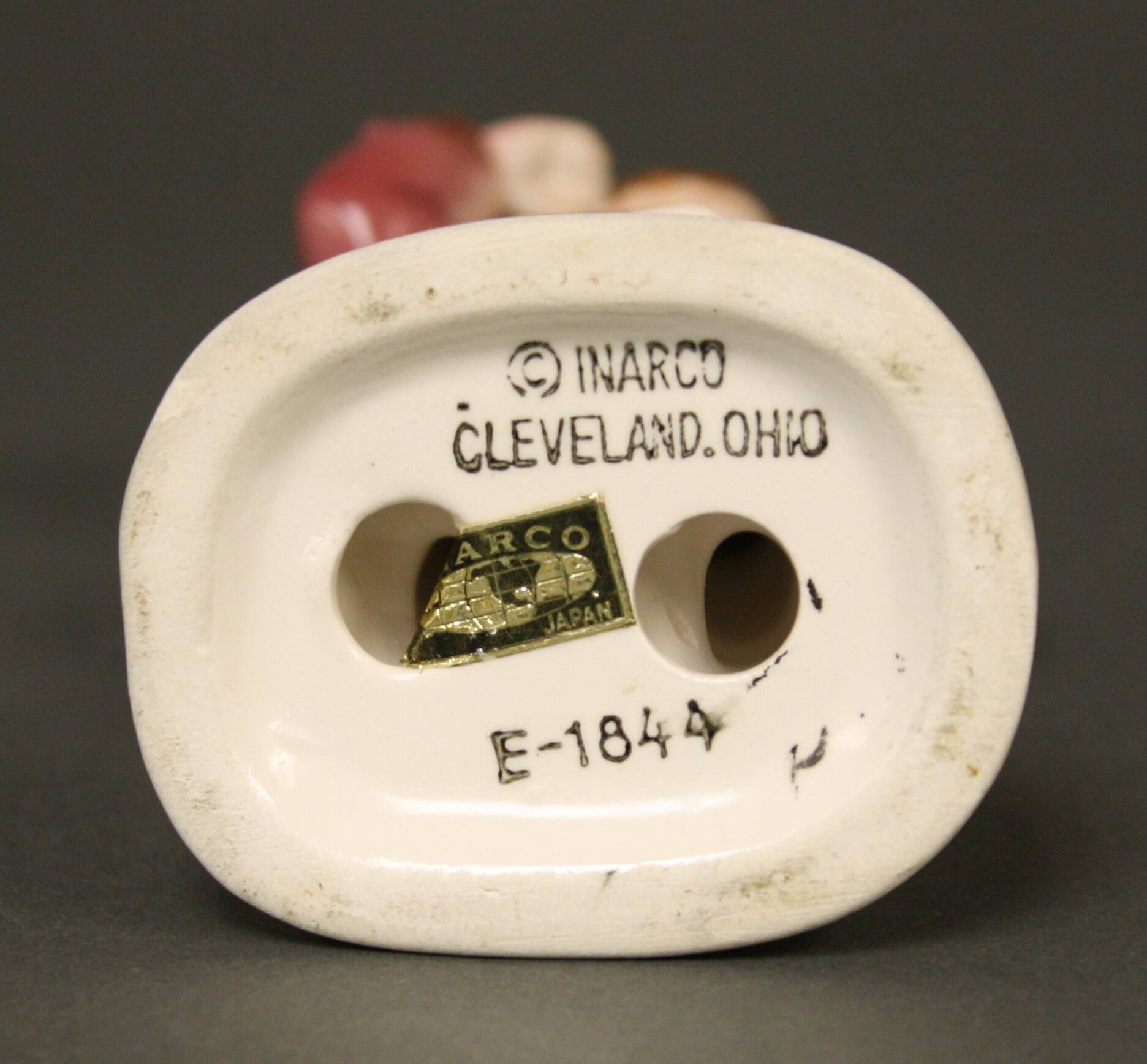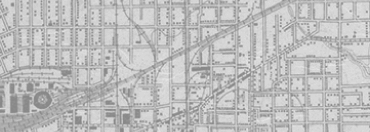


Back
Ceramic figurine of John F. Kennedy, Jr., saluting
Ceramic figurine representing John F. Kennedy, Jr., at the famous moment when he saluted his father's casket at President Kennedy's funeral on Monday, November 25, 1963, which was also John Jr.'s third birthday. The figurine is labeled "John-John" and shows the little boy in a short maroon coat. The day of the funeral, John Jr.'s coat was actually light blue.There is a gold foil "Inarco Japan" sticker on the bottom of the figurine. The following information is also on the bottom:"(c) InarcoCleveland, OhioE-1844"
Ceramic figurine of John F. Kennedy, Jr., saluting
circa 1964
Ceramic
5 5/16 × 2 3/8 × 2 1/4 in. (13.5 × 6 × 5.7 cm)
The Sixth Floor Museum at Dealey Plaza Collection
2012.049.0003
Included in the Museum's temporary exhibit, "Mourning a President," about the funeral and mourning rites for President John F. Kennedy, this item will be on display on the Museum's seventh floor from November 17, 2017 to February 19, 2018. -- Lindsey Richardson, Curator of Collections
Three-year-old John F. Kennedy, Jr. saluting his father's casket, as captured by several still and moving photographers that Monday, November 25, was arguably the singular image that affected the nation and the world more profoundly than any other in a weekend filled with vivid and powerful imagery. Those who witnessed that moment live began to "crumple as though struck," as described by William Manchester in "The Death of a Preisdent." Cardinal Cushing, speaking eight months after the Kennedy funeral, recalled watching the young boy's salute: "Oh God, I almost died." It was a moment that inspired poets, artists, musicians and sculptors, and it remains one of the most recognized images of the era. In "The Death of a President," Manchester writes of this moment: "Somehow the mood and meaning of the day had reached the President's son. His elbow was cocked at precisely the right angle, his hand was touching the shock of hair, his left arm was rigidly at his side, his shoulders were squared and his chin in. His bearing was militant, and to see it in a three-year-old, with his bare legs stiff below his short coat, his knees dimpled and his blunt red shoes side by side--to hear the slow swell of the music, and recall how the President had idolized him--was almost insupportable." -- Stephen Fagin, Curator

Ceramic figurine of John F. Kennedy, Jr., saluting
Ceramic figurine representing John F. Kennedy, Jr., at the famous moment when he saluted his father's casket at President Kennedy's funeral on Monday, November 25, 1963, which was also John Jr.'s third birthday. The figurine is labeled "John-John" and shows the little boy in a short maroon coat. The day of the funeral, John Jr.'s coat was actually light blue.There is a gold foil "Inarco Japan" sticker on the bottom of the figurine. The following information is also on the bottom:"(c) InarcoCleveland, OhioE-1844"
Ceramic figurine of John F. Kennedy, Jr., saluting
circa 1964
Collectibles
Pop Culture
Mourning
Funeral
Mourners
Kennedy, John F., Jr.
Inarco
Cleveland
Japan
Ceramic
5 5/16 × 2 3/8 × 2 1/4 in. (13.5 × 6 × 5.7 cm)
The Sixth Floor Museum at Dealey Plaza Collection
2012.049.0003
Included in the Museum's temporary exhibit, "Mourning a President," about the funeral and mourning rites for President John F. Kennedy, this item will be on display on the Museum's seventh floor from November 17, 2017 to February 19, 2018. -- Lindsey Richardson, Curator of Collections
Three-year-old John F. Kennedy, Jr. saluting his father's casket, as captured by several still and moving photographers that Monday, November 25, was arguably the singular image that affected the nation and the world more profoundly than any other in a weekend filled with vivid and powerful imagery. Those who witnessed that moment live began to "crumple as though struck," as described by William Manchester in "The Death of a Preisdent." Cardinal Cushing, speaking eight months after the Kennedy funeral, recalled watching the young boy's salute: "Oh God, I almost died." It was a moment that inspired poets, artists, musicians and sculptors, and it remains one of the most recognized images of the era. In "The Death of a President," Manchester writes of this moment: "Somehow the mood and meaning of the day had reached the President's son. His elbow was cocked at precisely the right angle, his hand was touching the shock of hair, his left arm was rigidly at his side, his shoulders were squared and his chin in. His bearing was militant, and to see it in a three-year-old, with his bare legs stiff below his short coat, his knees dimpled and his blunt red shoes side by side--to hear the slow swell of the music, and recall how the President had idolized him--was almost insupportable." -- Stephen Fagin, Curator














